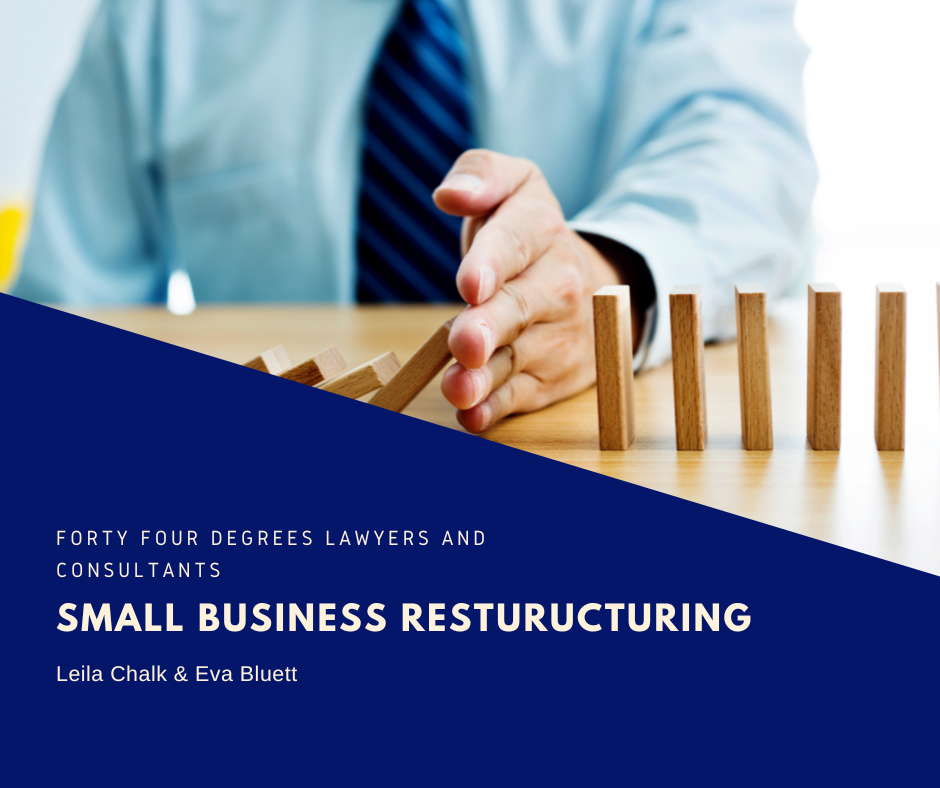
By Leila Chalk and Lewis Wolfe
•
26 Oct, 2021
Background The government has introduced a number of changes as part of the 2020 Budget Digital Business Plan that are designed to simplify and streamline access to, and maintenance of, business records with the government. The Modernising Business Registers Program establishes the Australian Business Registry Services, which will create a single place for more than 30 ASIC registers and the Australian Business Register. Increased centralisation of records, integrity, and ease of access are a clear intended benefit of the program. More complete, accessible records means that the transparency and accountability of businesses are increased. In line with these updates, the Modernising Business Registers Program also introduces the requirement under the Treasury Laws (Registries Modernisation and Other Measures) Act 2020 (Cth) for all Directors to acquire a unique Director Identification Number (DIN). Director Identification Numbers A DIN is a unique identifier number that each Director is required to apply for once and will keep forever. This means that a Director of one company that later becomes a Director of another company will have the same DIN for their role in each company. This program is intended to address illegal ‘phoenixing’ activities and increase Director accountability. Each Director is required to register their DIN for each relevant entity they become a Director of, which is then maintained on a centralised register. This means that Directors are easily and efficiently traceable through the various companies they currently, or have previously, directed. Who must hold a DIN? DINs must be held by Directors and alternate Directors acting in that capacity for relevant entities. Eligible entities are a company, a registered Australian body, or a registered foreign company under the Corporations Act 2001 (Cth) . Additionally, an Aboriginal and Torres Strait Islander corporation registered under the Corporations (Aboriginal and Torres Strait Islander) Act 2006 (Cth) is included in the list of relevant entities. What do I need to do? If the above applies to you, you will be required to make an application for a DIN via the Australian Business Registry Services website . Applications must be done personally, an authorised third party can only apply for the DIN on behalf of a Director if the government is satisfied the Director is unable to make the application on their own. Date requirements for applications: Corporations Act Directors Directors on or before 31 October 2021 have until 30 November 2022 to apply for a DIN; Directors who become Directors between 1 November 2021 and 4 April 2022 will need to apply for a DIN within 28 days of appointment as a Director; Following 5 April 2022, Corporations Act Directors will be required to have applied for a DIN before appointment. Aboriginal and Torres Strait Islander Corporations: For those who are Directors on or before 31 October 2022, the application date for a DIN is 30 November 2023; From 1 November 2022 those who are becoming Directors are required to apply for a DIN before appointment. DINs must be provided to the record-holder for the corporation. When being appointed to another directorship in the future, the DIN must also be provided to the record-holder for the relevant entity. It is also a requirement for Directors to inform the government of any changes to the information related to their DIN. If you wish to discuss any of the changes to Director obligations and what they mean for you, contact our offices. Leila Chalk is a Partner at Forty Four Degrees.

By Leila Chalk and Pamela Anderson
•
03 Jun, 2020
There comes a point where purchasing a new client list or practice is the best way forward to ensure growth for your business. It is a tricky and challenging area with overlaps between legal issues and change management practices. Integrating a new business into your own should be considered its own project, but we know that many of our clients tackle this without existing project management skills or change management planning. Over the years we had many discussions with clients, often focusing on the legal issues that occur, assisting with the documentation, or attending to due diligence. In the last two years both Pamela and Leila have lead teams that had undergone their own M&A experience and this has lead us to prepare this series of blog posts and presentations. Leila has been lecturing on change management, best practice, and consulting law firms on issues of risk for over five years. Pamela mentors and assists others in growing their businesses and ensuring that their practice provides the best rate of return for their efforts. Integration into Processes Before you are able to do due diligence on potential businesses to purchase, you need to be aware what your own existing operational processes are and how you plan on integrating the new business into your practice. Sometimes the easiest way to proceed is to consider purchasing a portfolio or a list in a practice area you usually do very little work in. This would create a new client base and establish quickly presence in that portion of the market. If you are a dental practice that usually does limited cosmetic work, opening a second branch with an existing list of clients and new staff that are already fully trained and a surgery that is fully equipped has some significant appeal. The worry here is that the two businesses would be too disjointed to function as one and that you will split your attention and lose resources trying to put them together. Look for commonalities (same space, same client management software, staff or resources that could be shared) and then look at the differences to see the amount of effort integration would require. If you are not adding a new practice area, but instead are looking at purchasing a portfolio to expand your existing practice area, look at which of you is closer to what is considered “best practice”. What kind of workload are your existing staff experiencing and is there capacity for them to take on new files or will you be required to put on new staff / transfer staff from the existing business. Transferring staff assists with client retention but can make it difficult to bring in new processes or fully integrate the practice into your own. How would you integrate the current WIP? It may be as simple as manually entering the data in, or may require complicated negotiations with the Vendor and the client. Either approach is fine, but turning your mind to the issue of integration is essential. How do you think the best way forward is to obtain future work from the current book? The most important aspect of this project is to ensure a Existing Team Your existing team is hopefully working as a well-oiled machine, but adding new chickens to the coop (whether they are files or staff) can have an effect on productivity and morale. Sometimes productivity will go up (Hawthorn’s effect) simply due to the change. In other situations, the anxiety and uncertainty caused by change will reduce productivity, which, in a situation where you have just made a significant financial risk, can also increase managerial burn out. It is best to have an existing plan on how to tackle this issue, and when required, obtain external intervention. Consultants who do best process integration (see above), client experience training, success coaches, or operational psychologists may be a worthy investment and ought to be considered a part of your toolbox. Change management requires you do plan, implement, analyse, and react to your findings. The moment you start the integration process plan a series of team meetings and reviews to give you insight into each of those stages. Those meetings should be decreasing in frequency and should offer your team an opportunity to be heard. Both 1:1 check-ins and formal written surveys have a place in a well thought out change management loop. That feedback will be invaluable for existing implementation and future growth. Legal Matters What are you buying and how is it going to be transferred? Despite this being the most obvious of the issues, it is the one where clients often come unstuck. Technological Issues Where is the data stored? How? How will it be transferred? Even if you are buying the business name and the rights to the domain, who has access to it and how will that be transferred to you? What happens to the auxiliary registrations and licences? Due Diligence To assist with integration, make sure you understand their existing processes from client acquisition to payment recovery. This will allow you to understand the amount of effort and resources it is going to take to bring their practice fully within your way of doing business. Are there any risk issues that ought to be obvious and how do you plan on tackling these? What are the Vendor’s reasons for selling? Financial Matters How are you going to pay for this new expansion? What are the ongoing costs of expansion? What is your rate of return? How do you plan on measuring that rate of return? What percentage of the book do you think will realistically be retained? Will this increase your insurance? By how much? Financing the purchase With so many opportunities to merge or to expand your business through acquisition it can quickly become frustrating when you go to your regular bank as a loyal customer to then be refused a loan. To finance expansion of your business you may have to think outside of the box, you may have to step away from the traditional lending methods and consider working with the vendor to achieve a suitable outcome for you both. Vendor Finance – if you have good communication with the Vendor this can be a mutually beneficial arrangement for both parties. Vendor finance is when the vendor agrees to finance the purchaser to buy their business from them. It should always have a legally binding contract and your terms and conditions should be clearly defined before this type of arrangement is entered into. Both parties are exposed to risk in that the purchaser could stop payments and take the business on the flip side the vendor can keep the business and the purchaser could end up working for free. Due to the nature of this arrangement it can become very litigious if it goes wrong. However when it goes right it can be the perfect way for the purchaser to build equity in the business. The purchaser can make payments, acquire the equity and then go to a bank to finance the rest of the purchase. This also allows the purchaser to get to know the business and the transition of owners can be very warm for the clients which can result in a higher rate of retention. Non bank lenders – Don’t overlook these non-bank lenders because they don’t have a big name or fancy building. Non-bank lenders are keen to expand their business and will often work with the business they are financing offering regular coaching and mentoring. The rates they offer can be better than the bank, they are also more flexible and willing to consider different business structures. If you have not considered these smaller lenders I suggest you do some research as you will be surprised as to how eager they are to work with you to grow your business. Second tier banks – this is basically not one of the big 4 banks, these banks seem to share the common feature of having minimum lending requirements of $1M which in its self can be a hurdle if you only want to finance a small purchase the first time. However they may allow you to bundle a few assets to reach the $1M which can result in a better interest rate and you will have more of your banking one place so it can also stream line your admin. Final advice, use a broker. The work of lending can be overwhelming and confusing. A broker can assist you by researching the lenders and matching you to the correct lender, this can save you time and also reduce the amount of credit file checks you may have on your file which can cause more hurdles for successful lending. The broker will also be able to guide you with he reports and documents you need to provide to the lender, they will also be able to explain your business model and structure. A broker can be extremely helpful with securing lending for your business, make sure the broker has experience and understanding of business finance.

By Leila Chalk and Diem Tran
•
27 Apr, 2020
As the COVID-19 pandemic continues to unfold, many businesses are struggling to keep their heads afloat. These businesses and individuals lie at the heart of our vibrant communities. Now, it is more important than ever to come together and support our local businesses. Practicing self-quarantine remains a crucial guideline for assisting to alleviate the disease, but this doesn't necessarily mean you cannot support your local businesses. No, we are not encouraging you to leave the house. There are ways to do this from the comfort of your own home, really! We sat down with Diem Tran (virtually, of course) from Street Sound & Vision for a video-conference to discuss the different ways his business has creatively adjusted to adapt to the new restrictions. What does supporting local businesses mean to you in the current social isolation environment? Supporting local businesses during this current isolation environment is fundamental to me and my business. This means to help keep our community in business, support them by purchasing as usual. If your situation allows you to, help to promote their business. Write a review, post a nice comment, tell your friends and most importantly: Stay Home. Respect your local businesses and try to find a way to support them from home. Local businesses are braving the current situation to keep our community alive. In return, help them and their families by staying home. If you have to come in-store, respect the rules put in place – stand behind the lines, keep your distances and respect the customer limitations. What have you had to change to be able to service your clients? As expected, we have increased our cleaning procedures to ensure it is the safest environment for our customers and our staff as they work on our clients’ vehicles. In terms of retail, we’ve asked our clients to divert their enquiries completely to social media platforms and phone calls. We are also increasing our sales and product lines online so our customers don’t need to risk their health to be provided our services. What kind of support has been helpful during this process? The best support we could ask for is the communities' support. The support from our suppliers and customers has been embraced by us, it’s helped us to keep our business up and running. We’ve appreciated every like, share, tag & comment on our photos to help us during this time as it has helped to increase the community's knowledge our business and inform clients that we are still open for business during this time. What kind of online shopping environment creates a sense of community and is that important when buying local? For us, it’s the Facebook and Instagram posts we pride ourselves on. By using these platforms, we have created a space where we can interact with our community directly, answer their enquiries and help them with their needs but also give our customers a space to speak to each other and share with one another. It’s the personalised experience we can provide to our community that is most important. Creating this online shopping environment is important when buying local. It shows that you are involved, that you have an interest in joining the community yourself as a business and that you are willing to adjust as the community changes. This is an experience that you wouldn’t be able to provide purely by selling through your website and we think our community appreciates that. Thank you to Diem and the team for braving these extraordinary circumstances to continue providing for the community with their services. To get in touch with Diem or the team at Street Sound & Vision, visit their website here. If you want to chat to us about how you can make changes to have your business comply with the current guidelines, please give us a call . From our team at Forty-Four Degrees, we hope that everyone is staying safe during this difficult time. And don’t forget to support your local businesses. Together, we are stronger. Leila Chalk is a lawyer and business advisor at Forty Four Degrees.

By Leila Chalk and Lewis Wolfe
•
06 Apr, 2020
Changes to the capital gains tax (CGT) regime in Australia were introduced in December 2019. The Treasury Laws Amendment (Reducing Pressure on Housing Affordability Measures) Act 2019 (Cth) removes the entitlement to the CGT main residence exemption for foreign residents. The exemption may, however, still apply to foreign residences in case of certain life events, including a terminal illness, within 6 years of them having become a foreign resident. Additionally, there is a grace period wherein foreign residents may sell their properties under the previous exemption before 30 June 2020. What is Capital Gains Tax? CGT is a type of tax payable on the sale of capital assets such as real estate or shares. The tax is applied to the gain, which is the difference between the acquisition and holding costs and the sale price. CGT applies to assets acquired on or after 20 September 1985, unless that asset is specifically excluded. Generally CGT won’t apply to most personal assets such as your home and car, in addition to depreciating assets such as business equipment. The capital gains are treated as taxable income for the year that the asset was sold or disposed of. How do you calculate CGT? Different calculation methods apply depending on what asset is subject to CGT. When calculating the capital gains from the sale of a property, the original purchase price, along with other costs associated with the purchase, holding, and selling of the property are totaled. This figure is called the cost base. The cost base is compared to the final sale price to calculate the total capital gains. If the final sale price is lower than the cost base, a capital loss has been made, which can be applied against other capital gains made that year or in future years. What was the CGT main residence exemption? The CGT main residence exemption is an exemption to the operation of the capital gains tax. It applies where the property being sold is your main residence. This exemption means that you do not have to pay capital gains tax when selling your main residence. Previously, foreign residents were able to use to CGT main residence exemption to pay less/no CGT. What are the implications of the change? The effect of CGT exemption removal will mainly be felt by the expatriate community, along with foreign nationals who temporarily live in Australia and buy a house to live in for the duration of their work, with the intention of selling the property after leaving the country. Expats will have to pay CGT without any pro-rating based on time spent living in Australia. This means that even if they lived in a house as their main residence from 1980 to 2010, then moved oversees from 2010 to 2020, the CGT upon sale of the property would be calculated to the base year of 1980, rather than the year they left. There are further difficulties regarding cost-basing due to these changes. In the above example, the owners of the house purchased in 1980 may not have kept the information required to accurately calculate the cost base. The cost base may include insurance, maintenance costs, land tax, council rates, and interest on money borrowed for purchase or improvements. An investment property purchaser is more likely to keep track of all these details, knowing at the time of purchase that they would need an accurate cost base to calculate CGT. In contrast, an expat who bought a home intending to be used as a primary residence in 1980 would not expect to need these details and very likely would not have complete records. The consequence is that the documented cost base is likely lower than the actual cost base, leading to inflated capital gains calculations and higher tax. Expatriates’ continued frustration Further criticisms of the legislative change include the logistical difficulties it creates for Australian nationals who moved overseas temporarily and subsequently remained overseas. Additionally, foreign nationals working in Australia who buy a property to live in for the duration of their stay may have to delay leaving to sell their property, which can be a long process. The overall effect is to hinder the financial feasibility for some Australians to work overseas along with foreign nationals to work in Australia. There is further confusion around how the exemption will apply in divorce circumstances, such as where a former partner becomes a foreign resident and then transfers their interest in the property to the partner that remained in Australia. Despite the house having been the family home for the entire duration of ownership, the remaining spouse may be unable to claim the full CGT exemption. Any good news? The Australian Tax Office estimates that the introduced changes will increase tax revenue by $510 Million in the period from 2017 through to 2021. The purpose of the change is to reduce pressure on housing affordability, with these changes being accompanied by reforms in the Treasury Laws Amendment (Foreign Resident Capital Gains Withholding Payments) Act 2017 (Cth), which modified the foreign resident capital gains withholding payments regime from 1 July 2017 to: • increase the withholding rate to 12.5 per cent; and • reduce the withholding threshold to $750,000. The change appears to incentivise foreign residents to sell their properties within the grace period that ends 30 June 2020 to take advantage of the main residence exemption. The increase in number of properties on the market may act to decrease prices, reducing affordable housing pressure. The affordable housing crisis in Australia is well documented, and it is thought that these changes will go towards alleviating pressure. However, the change comes as a shock to many expats. There are still many questions left unanswered, such as whether expats will be allowed to use a reasonable estimate cost-basis where they have incomplete records. Feel like selling your home? Are you an expat who suddenly needs to sell their home before 30 June 2020? You’re not alone. If you wish to discuss the changes in the CGT regime in further detail, or want assistance in selling your home, please contact us.

By Leila Chalk and Jamielle Mckinnon
•
02 Apr, 2020
Coronavirus: what should the cleaning industry do to keep safe? The COVID-19 situation continues to rapidly unfold around us. In these extraordinary circumstances, it is now more important than ever to take the necessary precautions for the health and safety of our community. This means adhering to good hygiene practices on an individual level, community level as well as a corporate level. Amidst this global pandemic, the cleaning industry will play a key role in the prevention and control of the virus. Information for cleaning industry Of course, everyone is responsible for their own personal hygiene. But we get it, we all need to go out once in a while for necessities. In that case, what can the cleaning industry do to keep the community safe? According to the Center for Disease Control and Prevention (CDC), evidence suggest that the virus may remain on surfaces anywhere from several hours to a few days. The Australian Department of Health suggests that routine environmental cleaning with disinfectant should be conducted in public and social environments to minimise exposure to the virus. Routine environmental cleaning requirements are divided in the following categories: 1. Frequently touched surfaces - Frequently touched surfaces such as door handles, bedrails, tabletops, light switches should be regularly cleaned. Anti-bacterial detergent solution can be used as per manufacturer’s instructions. The choice of detergent should be determined according to the nature of the surface and the potential degree of contamination. - Detergent wipes may be used. However, it should not act as a replacement for mechanical cleaning processes. 2. Minimal touched surfaces - Minimally touched surfaces are surfaces such as floors, ceiling, walls, blinds and sinks. Different from frequently touched surfaces, detergent wipes are adequate solution for cleaning general surfaces. - Damp mopping for floors is preferred to dry mopping, and should be conducted daily. - Walls and blinds should be cleaned when dusts are visible. - Windows and curtains should the regularly cleaned and wiped when dirt is apparent, and changed in the instances where there is visible damage. - Sinks and basin should be regularly cleaned. In light of the current situation, social distancing is encouraged. As a result, people are less willing to engage many services, including cleaning services. To maintain a high level of hygiene within the workplace, and maintain confidence with clients, the following procedures are advised: 1. Train your staff using the infection control training produced by the government. One such training course is available here . 2. Contact clients and advise them on the additional measures taken to ensure the safety of the clients. Below are some suggested practices: • Inform your clients that your staff have completed the government training in relation to infection control for COVID-19 • Your staff are adhering to the social distancing guidelines in their personal life • You are checking temperatures of staff who arrive at work • Staff have access to sick leave and are encouraged to use it in instances where they feel unwell • Your staff are wearing protective gears such as: gloves, masks and aprons when carrying out cleaning jobs. Additionally, these protective equipment are changed and disposed after the completion of each cleaning procedures • Your staff are properly trained and equipped in decontaminating an area Information for cleaning staff Cleaning staff face additional risks when working in a highly contagious environment. The following precautionary measures are recommended: - Cleaning staff should avoid touching their face, specifically eyes, nose and mouth when cleaning. - Cleaning staff should wear waterproof disposable gloves, surgical masks and eye protection during cleaning procedures. - Cleaning staff should use an alcohol-based hand cleaning solution before and after the removing of disposable gloves, surgical masks and eye protection. - In instances where a surface is visibly contaminated with respiratory secretions or body fluids, cleaning staff should wear disposable gowns, waterproof disposable gloves, surgical masks and eye protection. - Disposable gowns, waterproof disposable gloves, surgical masks and eye protection are to be disposed in a leak proof bag. We know some industries are currently thriving, some are at a standstill, and some are struggling to find their place. Contact Leila Chalk to speak about the challenges your business is experiencing today.

By Leila Chalk & Josh Lambert
•
26 Mar, 2020
We caught up with Josh Lambert from Pinnacle Health to talk about how stage 2 restrictions have affected their business and the steps they have taken to assist their clients. 1. What does supporting local business during COVID-19 mean to you? Supporting local business is crucially important. Most places that we eat, drink, meet, socialise, are entertained, and receive services are usually locally owned small to medium businesses. We are big believers in the power of community and the social elements that contribute to the wellbeing of a community and its people, so at this crazy time it's more important than ever to support local businesses. This can be achieved by experiencing the new ways in which the local business are delivering their products and services (eg take away fine dining, virtual gym classes, telehealth physio consultations etc) or even pre purchasing services and vouchers (with potential discounts) to ensure improved cashflow for the businesses. 2. How have you been able to shift the way you do business to accommodate your clients? For the workplace wellness or corporate health part of our business, we are offering similar services but with a remote or virtual delivery. Flu Vaccinations are delivered via voucher to redeem in pharmacies, rather than in the workplace as per traditional delivery. Seminars, workshops, classes and assessments are delivered by telehealth or teleconference set up. 3. What can we expect from a telehealth appointment? How do they work? How much do they cost? Can they be claimed on health insurance? Telehealth appointments are half the normal price of a standard physiotherapy appointment, as they cannot yet be claimed on private health insurance (watch this space!). 4. What challenges do you think the working from home workforce is currently experiencing from a health perspective? See our summary attached , but workstation set up (and the pending musculoskeletal issues), social isolation, anxiety, depression, less movement, poorer diet and eating behaviours, relationship stress, lack of sleep, increased alcohol intake and less access to exercise options are commonplace right now. 5. What responsibility do you think employers who have wellness packages have at this time? Continually communicating with employees and offering supports for home based working. The attached have been the most popular, particularly the working from home desk assessments via telehealth. Laptops on couches (and no keyboards and mice to be found in shops) leads to neck and back pain. The workshops (delivered via zoom or your preferred platform) are also a great way to feel connected to the team whilst charing challenges that team members are facing right now. Plus of course learning practical ways to combat these challenges. Flu Vaccinations are of course important. 6. Should we re-visit our employee wellness package offering at this stage? Now is an opportune time to show your versatility and flexibility as an employer. Ernst & Young (client) were able to pivot quickly, and have had over six hundred employees dial into virtual classes or workshops since Wednesday last week. I think it's a great time to show off your ability to be agile as an employer, and from our early estimates we expect many employers to continue with virtual or remote access to parts of the wellbeing program long after the world goes back to "normal". Leila Chalk is the principal solicitor at Forty Four Degrees Lawyers and Consultants, assisting businesses in responding to COVID-19 challenges.

By Leila Chalk & David Simpson
•
21 Mar, 2020
There is a lot of overlap between HR and employment advice, but in a crisis like this, you probably need both. Why? Because your lawyer may not be able to make hands-on changes to run your business more efficiently. A HR manager can. We caught up (virtually) with David Simpson from Melbourne HR to talk virtual employment strategies. How can having a HR manager help teams stay together while working virtually? Virtual working can create range of stresses for people. On the surface it sounds like an improvement, but in fact working from home is an entirely new paradigm for most people. Even if they have done it before they idea of going all week for weeks on end presents new challenges. The simplest of these is communication. Once you create a virtual office people will preference email and chat rooms over voice communication. Thoughts and tones can be quickly misconstrued. Enforcing good communication 'mixes' can improve harmony, productivity and culture. A HR professional can set good habitats straight away (preventive), they can smooth and defuse friction (repair) and then diagnose that friction and create better processes and habitats going forward (optimisation). This is just one aspect of virtual workspaces a HR professional can work on. Is it the right time to talk to someone about hiring a HR manager? A tough one. Whilst companies could use the support and expertise more now than ever, it is not the right time to be putting more strain on your payroll. Instead talk to a consulting firm, Melbourne HR is one, but there are others out there is the best commercial decision in the present environment. If you like the service you can either engage that firm on a retainer in long term or get them to help you setup an in-house HR team once these exceptional circumstances have dissipated. Can you help someone shift their business to a more efficient and effective model? Yes, but it is very situational. A lot of businesses grow very organically. Their company structure is not planned out. They likely have skill deficiencies, skill double ups and workflow issues. When firms are very small or grow rapidly they need people fast so they keep hiring, never looking back to see how all those pieces fit together. This can be the same for companies that have been around for a very long time. The environment around them changes and suddenly what was once effective is now obsolete and inefficient. Each of these circumstances need their own solutions. Importantly in every circumstance process development is important, a key to creating efficiency and a consistent experience for your clients/customers. To speak to David or the team rom Melbourne HR, you can contact them here . Leila Chalk is the principal solicitor at Forty Four Degrees, currently focusing on helping businesses cope with COVID-19 and the related social distancing regulations.
Leila Chalk
Master of Laws (with merit)
Graduate Diploma of Legal Practice (with distinction)
Bachelor of Commerce
Bachelor of Laws
Fellow of The Tax Institute
Managing Partner
Leila is the Managing Partner of Forty Four Degrees with a background in commercial and property law. She is a Fellow of the Tax Institute in Australia and is also a part of the disciplinary tribunal at CPA Australia.
Currently, she is the partner in charge of the Family Law, Criminal Law, Wills and Estates, and Tax teams and works closely with clients to ensure a pragmatic and holistic approach to dispute resolution.
She presents at different legal seminars as part of annual continued professional development conferences and consults other lawyers in the area of practice management. She looks after lawyers and other professionals facing disciplinary proceedings from their regulatory body.
Leila has written a number of guides on property law available at the Victorian Law Foundation and has presented seminars annually at Law Week.
As a published author and obsessive baker, Leila is passionate about giving back to her clients and community. Leila holds directorship positions on the boards of the Ballarat Business Centre and the Ballarat International Foto Biennale.
Languages: English, Bosnian, Serbian, and Croatian.
To get in touch with Leila, give us a call or fill out the form below.
Contact Us
We’re an Australian Law Firm promoting a nuanced, personal touch. We have the skills you need to resolve your case quickly and with a positive outcome. Our straight talking team stays close to simplify what is most often a complicated process. We help individuals and businesses with technology and startup law, property law including conveyancing and leasing, commercial law, civil litigation, wills, estates, bankruptcy, insolvency, criminal law, and professionals facing investigations and charges from their regulatory body.
We have a connected network of talented lawyers in Melbourne CBD, Dandenong, Ballarat, and Ivanhoe East.
Fill out the form or call us on 1300 892 237.
Thank you for contacting us.
We will get back to you as soon as possible
We will get back to you as soon as possible
Oops, there was an error sending your message.
Please try again later or call us on 1300 892 237.
About Us
We do business your way.
203/ 50 Market St, Melbourne VIC 3000
50 Lydiard St South
Ballarat Central VIC 3350



